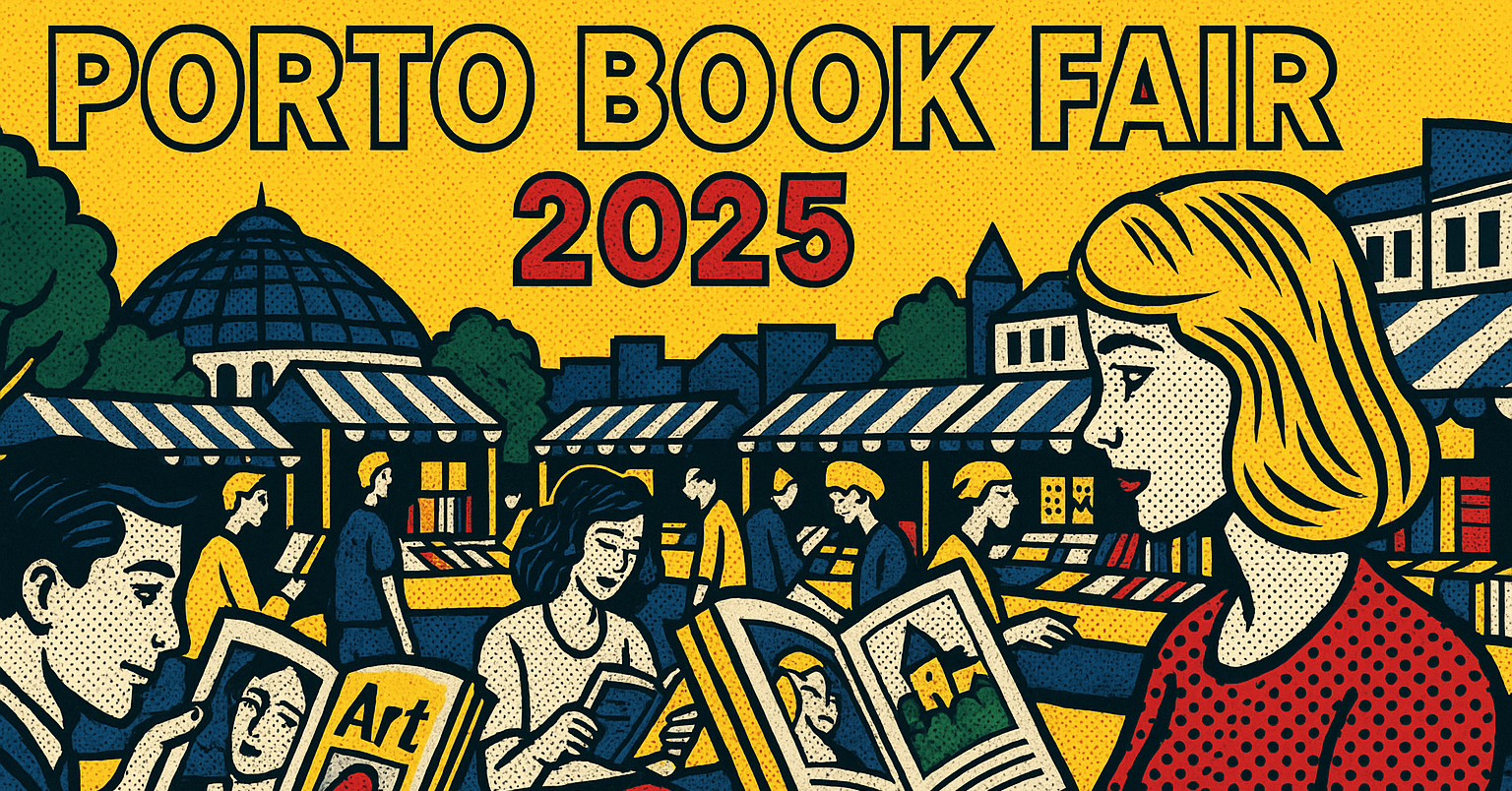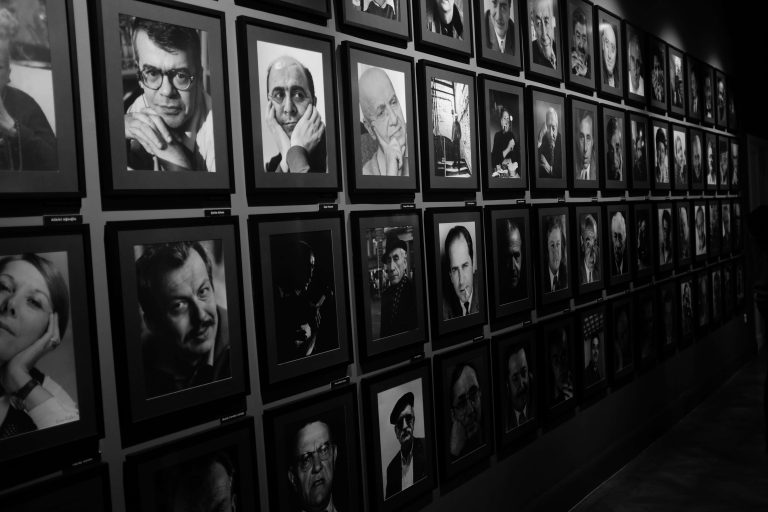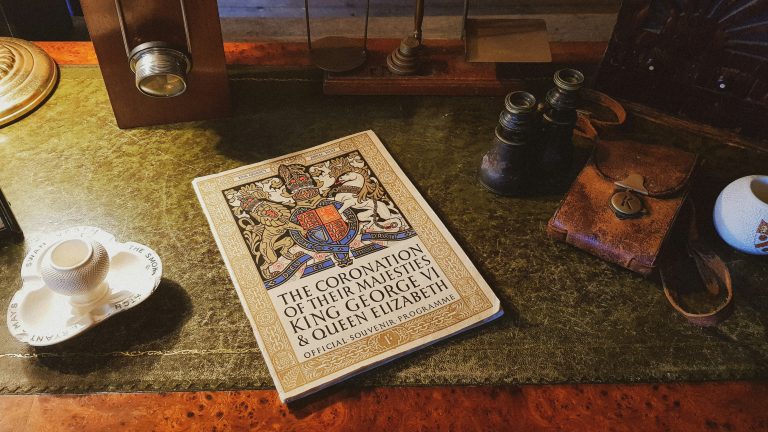Porto Book Fair 2025: A Celebration of the Written Word
Books have long served as vessels of knowledge, imagination, and cultural identity. In a rapidly digitalizing world, events that center on literature continue to hold immense value. One of the most significant literary events in Portugal is the Porto Book Fair, known locally as Feira do Livro do Porto. The 2025 edition will take place from August 22 to September 7, continuing its tradition as a celebration of reading, publishing, and cultural exchange. With each passing year, this fair attracts thousands of visitors, making it a central fixture in Porto’s annual cultural calendar. It not only showcases a wide range of books and authors but also promotes literacy, fosters dialogue, and strengthens the bond between the literary world and the broader community.
The Setting: Porto
The city of Porto provides an exceptional setting for a literary fair. As Portugal’s second-largest city, Porto is renowned for its deep historical roots and its contribution to the nation’s cultural and intellectual development. With a cityscape shaped by centuries of history—from Roman foundations to medieval cathedrals and 18th-century townhouses—Porto carries a unique architectural and cultural identity that resonates strongly with literature enthusiasts.
Porto is a UNESCO World Heritage Site, particularly its historic center, which is filled with iconic locations such as the Clérigos Tower, the São Bento Railway Station, and the Palácio da Bolsa. These sites, rich in architectural and historical value, reflect the city’s long-standing engagement with education, trade, and art.
The city’s cultural richness is further embodied by institutions like the Biblioteca Pública Municipal do Porto, established in the 19th century, and the Livraria Lello, widely considered one of the most beautiful bookstores in the world. Porto is also home to a number of universities and cultural organizations that promote Portuguese literature and host international literary discussions.
Its location along the Douro River adds to the fair’s appeal. The scenic riverbanks, gardens, and public parks—including the Jardins do Palácio de Cristal (Crystal Palace Gardens), where the book fair is usually held—create a tranquil, welcoming atmosphere. These natural surroundings offer an open-air venue conducive to browsing, reading, and cultural engagement.
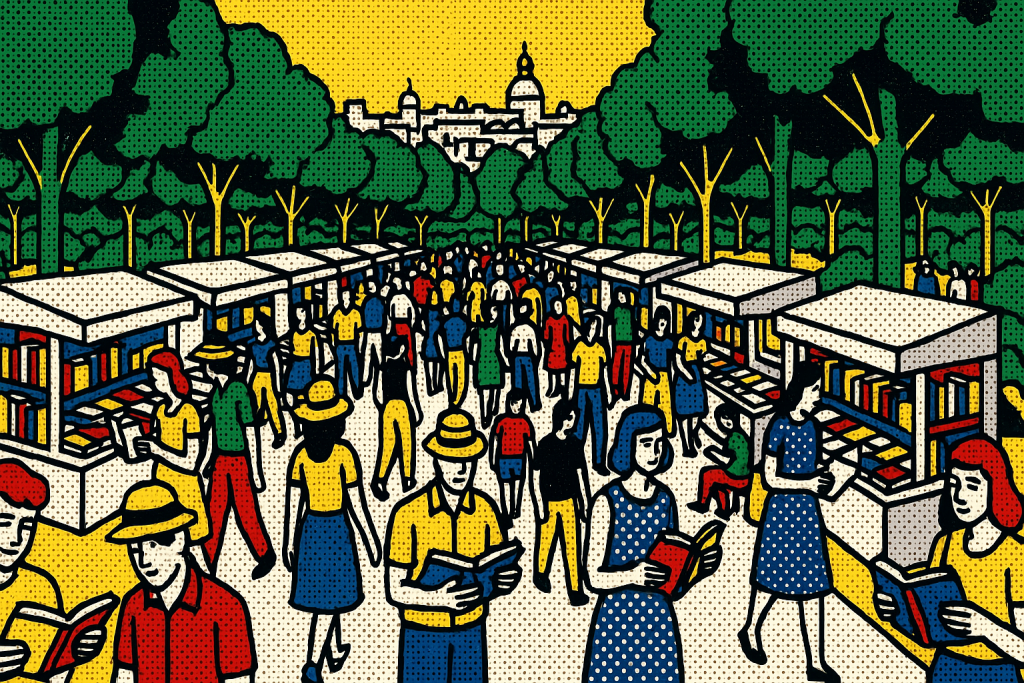
The Porto Book Fair Experience
The Porto Book Fair is one of the largest and most well-attended literary festivals in Portugal. Established in the early 20th century, it has grown into an annual event that showcases the vitality of Portuguese publishing and literature. It functions as a major platform for booksellers, authors, editors, and readers to meet, exchange ideas, and celebrate the written word.
The atmosphere at the fair is dynamic yet relaxed. With open-air bookstalls nestled under trees and pavilions scattered across scenic garden paths, visitors are encouraged to explore at their own pace. The fair fosters a sense of community and inclusivity, making it accessible to readers of all ages and backgrounds.
One of the key highlights of the fair is the wide range of bookstalls and publishers represented. The event features more than a hundred exhibitors annually, including independent bookstores, university presses, literary magazines, and major publishing houses. Books across multiple genres are available, from literary fiction and poetry to academic texts, biographies, children’s books, and translated works. The fair is an excellent opportunity for readers to discover both mainstream and lesser-known titles, as well as newly released publications.
Another central component of the Porto Book Fair is its author programming. The event regularly hosts renowned Portuguese writers, as well as international authors, offering visitors the chance to attend public readings, moderated talks, and book presentations. These sessions allow for meaningful engagement between authors and audiences, offering insights into the writing process, literary themes, and cultural influences.
In addition to literary offerings, the fair includes a robust cultural program. Visitors can experience concerts, theatrical performances, art installations, and exhibitions organized in collaboration with local cultural institutions. These events complement the literary programming and contribute to the overall artistic ambiance of the fair.
Workshops and thematic discussions are also part of the agenda. These are typically focused on relevant topics such as contemporary literature, publishing practices, translation studies, and the preservation of literary heritage. Such events are hosted by professional writers, scholars, and cultural commentators, ensuring a well-informed and factual discourse.
The fair caters to a diverse audience. It is especially attractive to avid readers, students, families, educators, and cultural tourists. Each year, the event welcomes both local residents and international visitors, making it an inclusive gathering that encourages dialogue across communities and cultures.

Planning Your Visit
The 2025 Porto Book Fair will be held from August 22 to September 7, spanning over two weeks of literary and cultural programming. While final venue confirmations are announced by the Porto Municipal Government closer to the event, the fair is traditionally held in the Gardens of Palácio de Cristal, a centrally located and easily accessible park known for its expansive green areas and panoramic views of the Douro River.
The location is situated within walking distance of several major landmarks and public transport options, including bus lines and metro stations that connect it to the rest of the city. For those arriving from other regions of Portugal or abroad, Porto is served by Francisco Sá Carneiro Airport, located approximately 11 kilometers from the city center.
When planning a visit, weekdays typically offer a more relaxed atmosphere, while weekends can be busier due to higher foot traffic. Mornings and early afternoons are generally ideal for those who wish to browse books in a quieter environment or attend talks with smaller audiences. Many events, however, are scheduled throughout the day, making it possible to enjoy the fair regardless of arrival time.
For visitors interested in exploring Porto beyond the book fair, the city offers numerous museums, historic churches, wine cellars, and culinary experiences. Sites like the Museu Nacional Soares dos Reis, the Port Wine Museum, and the Ribeira district provide additional opportunities to engage with the city’s heritage.
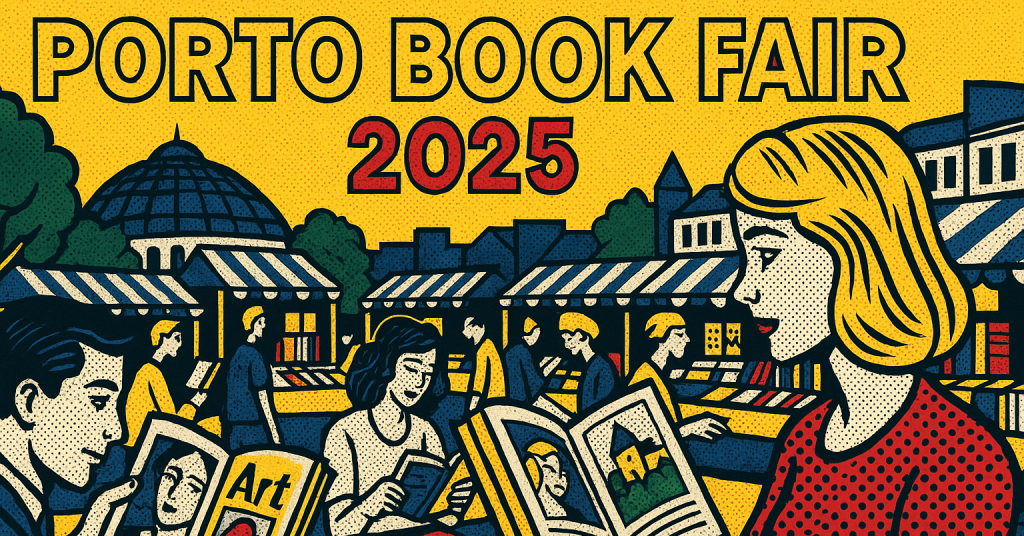
Conclusion
The Porto Book Fair 2025 stands as a significant cultural event that not only supports the literary sector but also reflects the enduring importance of books in contemporary society. Set against the backdrop of one of Portugal’s most historic and scenic cities, the fair brings together readers, writers, and publishers in a shared celebration of creativity, language, and knowledge.
By combining the richness of literature with the cultural depth of Porto, the fair offers a meaningful experience that highlights the power of reading and the role of books in fostering understanding across generations. Whether you’re a lifelong reader, a curious tourist, or an educator seeking new resources, the Porto Book Fair is an event that welcomes and inspires all.
Key Takeaways
- Dates and Venue: The Porto Book Fair 2025 will run from August 22 to September 7, likely held in the Jardins do Palácio de Cristal, a picturesque park in central Porto.
- Literary Significance: This is one of Portugal’s largest and most important literary events, attracting thousands of readers, publishers, and authors from across the country and abroad.
- City as Cultural Backdrop: Porto’s rich literary, historical, and architectural heritage—recognized as a UNESCO World Heritage Site—enhances the fair’s cultural relevance.
- Diverse Programming: The fair features over a hundred exhibitors, author talks, book launches, workshops, and cultural performances, offering something for every age and interest.
- Inclusive Experience: The event is designed to be accessible and engaging for all, from avid readers and educators to families and tourists, with a welcoming, open-air format.
- Practical Planning Tips: Visitors can enjoy a relaxed atmosphere on weekdays and quieter mornings; the venue is centrally located and easily reachable by public transportation.
- Cultural Immersion: Beyond books, the fair offers opportunities to explore Porto’s museums, wine cellars, and local cuisine, enriching the overall visitor experience.
FAQs
What makes the Porto Book Fair 2025 a unique literary event in Portugal?
The Porto Book Fair stands out for its blend of literary celebration and cultural richness. Held in the scenic Palácio de Cristal Gardens, it offers a dynamic mix of book exhibitions, author talks, and artistic performances in a UNESCO-recognized city known for its historical and intellectual heritage.
Who can attend the Porto Book Fair, and is it suitable for families or international visitors?
The fair is open to everyone—readers, families, students, educators, and international tourists alike. With diverse programming, children’s books, workshops, and multilingual events, it creates an inclusive space that welcomes people from various backgrounds to explore literature in a relaxed, outdoor environment.
What types of activities can visitors expect at the Porto Book Fair 2025?
Visitors can enjoy browsing hundreds of bookstalls, attending readings by Portuguese and international authors, joining discussions on literature and publishing, and experiencing concerts, exhibitions, and cultural performances—all designed to celebrate storytelling and promote literary engagement in an immersive, festive atmosphere.
Step into the vibrant world of contemporary Portuguese poetry and discover the powerful voices shaping literary expression in the 21st century. These poets are redefining language, emotion, and artistic innovation—don’t miss the chance to explore their work!

